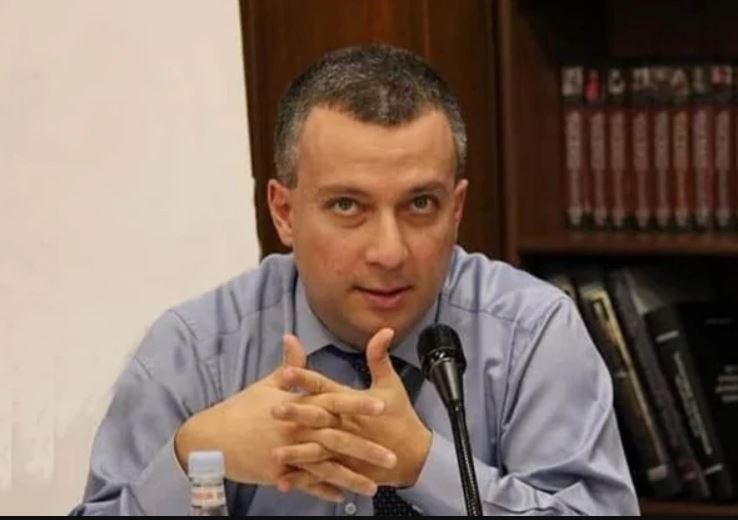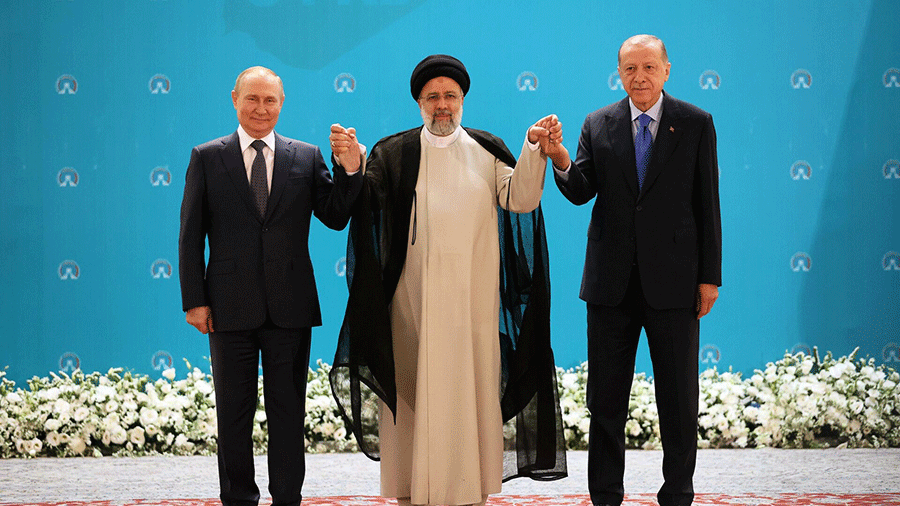by Benyamin Poghosyan
As Armenia and Azerbaijan continue negotiations to sign a peace agreement, the restoration of communications between the two countries has become one of the hot topics in the talks. It has multiple dimensions, including issues related to passport and customs control modalities while crossing Armenian and Azerbaijani borders and the safety of passengers and cargo that will pass via Armenia and Azerbaijan.
After the military takeover of Nagorno Karabakh in September 2023, Azerbaijan dropped its demands for an extraterritorial corridor via Armenia to connect with the Nakhijevan Autonomous Republic. However, it continued to demand a passport and customs control-free regime for Azerbaijani citizens and goods that will pass via Armenia to reach Nakhijevan and visa versa. Azerbaijan also demands the involvement of third countries to ensure the security of Azerbaijani passengers and cargo, arguing that Armenia cannot provide the necessary guarantees. Azerbaijan brought these topics into center stage, discussing them during conferences, workshops, and webinars focused on Armenia-Azerbaijan relations.
Read also

Benyamin Poghosyan
Meanwhile, surprisingly, the security of Armenian passengers and cargo that will pass via Azerbaijan to reach Iran and Russia is not discussed much. This situation is bizarre, given multiple heinous crimes against the Armenian civilian population committed by Azerbaijan, which have been widely condemned by the international community. These include incidents during the 4-day war in April 2016, the 2020 Second Nagorno Karabakh war, the 2021-2022 Azerbaijani incursions into Armenia proper, the nine-month blockade of Armenians in Nagorno-Karabakh to the point of near-starvation, and the September 2023 military takeover of Nagorno Karabakh. During just the 24-hour Azerbaijani military attack on Nagorno Karabakh on September 19, 2023, at least 25 Armenian civilians were killed, among them five children. Dozens of civilians were wounded, including ten children, and five civilians are still missing.
Multiple war crimes against Armenians, coupled with strong anti-Armenian hate propaganda, which is, unfortunately, still widespread in Azerbaijan, are clear indications that Armenian passengers and cargo will not be able to pass through Azerbaijan to reach Iran, Russia, or other parts of Armenia without special security guarantees provided by third countries. It means that even if Armenia and Azerbaijan reach an agreement on the restoration of communication without precise modalities for security guarantees for Armenian cargo and passengers, the agreement will not be implemented in real life, as Armenians will refuse to travel via Azerbaijan and put the life of their families under the direct threat of physical abuse.
Given that the usage of Azerbaijani territory to reach Russia from Armenia either by highways or railways is a difficult task due to the complicated geographical terrain – it simply does not make sense to travel from Yerevan to Baku by railway via Nakhijevan and southern Azerbaijan and then travel an additional two hundred kilometers to reach the Azerbaijan – Russia border; the Nakhijevan Autonomous Republic would likely become the central hub for Armenian cargo and passengers to reach Iran and also the southern part of Armenia by highway and railway, circumventing the mountainous road which currently connects capital Yerevan with the Syunik region. In this context, the discussions should start at an expert level on possible ways to ensure the safety of Armenians who may travel through Nakhijevan.
Azerbaijan, given its recent behavior and ongoing rhetoric against Armenians, cannot provide realistic guarantees to Armenian cargo and passengers. The involvement of a third country or international organization is the only way to stabilize the situation and pave the way for the restoration of communications. Given the geographical location of Nakhijevan, as well as geopolitical developments of the South Caucasus, Iran, Russia, and the EU are candidates to be involved in de-conflicting this process. Russia mediated the signature of four Armenia–Azerbaijan joint statements in 2020-2022, and Moscow has friendly relations with both Armenia and Azerbaijan. Despite the recent increase in hostile rhetoric between Armenia and Russia, Yerevan continues its membership in Russian-led organizations, and the Russian military base and border troops are located in Armenia. In its turn, Azerbaijan signed a declaration on allied interaction with Russia in February 2022. Azerbaijan serves as a transit country for Russia to reach Iran, and Azerbaijan buys Russian natural gas.
Armenia, Azerbaijan, and Russia established a trilateral commission on the restoration of communications in early 2021, chaired by deputy prime ministers, which reached some progress. The trilateral commission may be an efficient venue to start discussions on securing the safety of Armenian passengers and cargo traveling via Nakhijevan.
Iran is another option for providing security guarantees for Armenians who will travel via Nakhijevan. Most Armenians who will use Nakhijevan’s territory will travel to Iran via highways or railways, and the same applies to cargo. Iran has friendly relations with Armenia, and despite tensions with Azerbaijan in recent years, Azerbaijan and Iran continue their cooperation on various issues, including the possibility of updating the infrastructure, which has been used to connect Azerbaijan with Nakhijevan in the last 30 years. Armenia may initiate trilateral Armenia – Azerbaijan – Iran talks on Iran’s role in ensuring the safety of Armenian passengers and cargo traveling via Nakhijevan.
The EU is another candidate which may play a role in this issue. Armenia and Azerbaijan are members of the EU’s Eastern Partnership Initiative; Azerbaijan and the EU have significantly expanded their economic cooperation since the launch of the “Southern Gas Corridor,” and active discussions are underway to export electricity from Azerbaijan to the EU via the Black Sea. Azerbaijan and the EU are discussing the possibilities of increasing the capacities of the “Middle Corridor,” which connects China with Europe via Kazakhstan, the Caspian Sea, Azerbaijan, Georgia, and Turkey. Meanwhile, in the last two years, Armenia has increased its cooperation with the EU, including deploying the EU observer mission in Armenia and the EU’s decision to start the visa liberalization process with Armenia. Since December 2021, the EU has served as a platform for Armenia – Azerbaijan talks through the facilitation of the European Council President Charles Michel. All this makes the EU a viable candidate to provide necessary safety and security guarantees to ensure the smooth travel of Armenian passengers and cargo via Nakhijevan.
Russia, Iran, and the EU are the potential actors that can support Armenia and Azerbaijan to finalize the restoration of communications by providing necessary security guarantees for Armenians, who may travel via Nakhijevan and, in the later stages, via Azerbaijan proper. Other countries and international organizations may also be included in the negotiations. However, one thing is clear: Given the history of crimes against the Armenian civilian population by Azerbaijan, Armenians can only use Azerbaijani territory for travel and cargo transportation with third-party guarantees. Anyone interested in restoring communications between Armenia and Azerbaijan should encourage the sides to start discussions on these topics; otherwise, a secure and prosperous South Caucasus will remain an unachievable dream.



















































